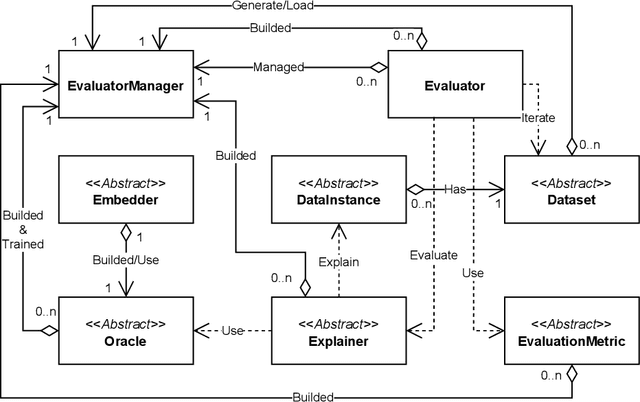Mario Alfonso Prado-Romero
Robust Stochastic Graph Generator for Counterfactual Explanations
Dec 18, 2023



Abstract:Counterfactual Explanation (CE) techniques have garnered attention as a means to provide insights to the users engaging with AI systems. While extensively researched in domains such as medical imaging and autonomous vehicles, Graph Counterfactual Explanation (GCE) methods have been comparatively under-explored. GCEs generate a new graph similar to the original one, with a different outcome grounded on the underlying predictive model. Among these GCE techniques, those rooted in generative mechanisms have received relatively limited investigation despite demonstrating impressive accomplishments in other domains, such as artistic styles and natural language modelling. The preference for generative explainers stems from their capacity to generate counterfactual instances during inference, leveraging autonomously acquired perturbations of the input graph. Motivated by the rationales above, our study introduces RSGG-CE, a novel Robust Stochastic Graph Generator for Counterfactual Explanations able to produce counterfactual examples from the learned latent space considering a partially ordered generation sequence. Furthermore, we undertake quantitative and qualitative analyses to compare RSGG-CE's performance against SoA generative explainers, highlighting its increased ability to engendering plausible counterfactual candidates.
GRETEL: A unified framework for Graph Counterfactual Explanation Evaluation
Jun 07, 2022


Abstract:Machine Learning (ML) systems are a building part of the modern tools which impact our daily life in several application domains. Due to their black-box nature, those systems are hardly adopted in application domains (e.g. health, finance) where understanding the decision process is of paramount importance. Explanation methods were developed to explain how the ML model has taken a specific decision for a given case/instance. Graph Counterfactual Explanations (GCE) is one of the explanation techniques adopted in the Graph Learning domain. The existing works of Graph Counterfactual Explanations diverge mostly in the problem definition, application domain, test data, and evaluation metrics, and most existing works do not compare exhaustively against other counterfactual explanation techniques present in the literature. We present GRETEL, a unified framework to develop and test GCE methods in several settings. GRETEL is a highly extensible evaluation framework which promotes the Open Science and the evaluations reproducibility by providing a set of well-defined mechanisms to integrate and manage easily: both real and synthetic datasets, ML models, state-of-the-art explanation techniques, and evaluation measures. To present GRETEL, we show the experiments conducted to integrate and test several synthetic and real datasets with several existing explanation techniques and base ML models.
 Add to Chrome
Add to Chrome Add to Firefox
Add to Firefox Add to Edge
Add to Edge